

| Cruise Region : Europe |
| Company : Viva Cruises |
| Ship : VIVA ONE |
| Journey Start : Sun 24 Aug 2025 |
| Journey End : Sun 31 Aug 2025 |
| Count Nights : 7 nights |
| Day | Date | Port | Arrival | Departure |
|---|---|---|---|---|
| 1 | 24.08 Sun | Dusseldorf / Germany | 16:30 | |
| 2 | 25.08 Mon | Koblenz / Germany | 07:00 | 13:00 |
| 3 | 26.08 Tue | Traben-Trarbach | 01:00 | 19:00 |
| 3 | 26.08 Tue | Traben-Trarbach | 03:30 | 12:00 |
| 3 | 26.08 Tue | Traben-Trarbach | 12:00 | 19:00 |
| 3 | 26.08 Tue | Bernkastel-Kues / Germany | 15:00 | 21:00 |
| 4 | 27.08 Wed | Schweich / Luxembourg | 02:30 | 12:30 |
| 4 | 27.08 Wed | Trier / Germany | 03:30 | 14:30 |
| 4 | 27.08 Wed | Trier / Germany | 04:30 | 12:30 |
| 4 | 27.08 Wed | Bernkastel-Kues / Germany | 18:30 | |
| 5 | 28.08 Thu | Cochem / Germany | 07:00 | 13:00 |
| 5 | 28.08 Thu | Cochem / Germany | 08:00 | 13:00 |
| 5 | 28.08 Thu | Treis–Karden | 13:00 | 19:00 |
| 5 | 28.08 Thu | Treis–Karden | 14:00 | 17:30 |
| 5 | 28.08 Thu | Bernkastel-Kues / Germany | 00:30 | |
| 6 | 29.08 Fri | Rüdesheim / Germany | 07:00 | 14:00 |
| 6 | 29.08 Fri | Rüdesheim / Germany | 08:45 | 15:30 |
| 6 | 29.08 Fri | Loreley Passage | 16:00 | 16:00 |
| 6 | 29.08 Fri | Linz on the Rhine | 20:00 | |
| 6 | 29.08 Fri | Königswinter / Germany | 21:00 | |
| 6 | 29.08 Fri | Königswinter / Germany | 22:30 | |
| 7 | 30.08 Sat | Bonn / Germany | 08:00 | 13:00 |
| 7 | 30.08 Sat | Dusseldorf / Germany | 17:00 | |
| 7 | 30.08 Sat | Königswinter / Germany | 07:30 | |
| 7 | 30.08 Sat | Linz on the Rhine | 06:30 | |
| 8 | 31.08 Sun | Dusseldorf / Germany |
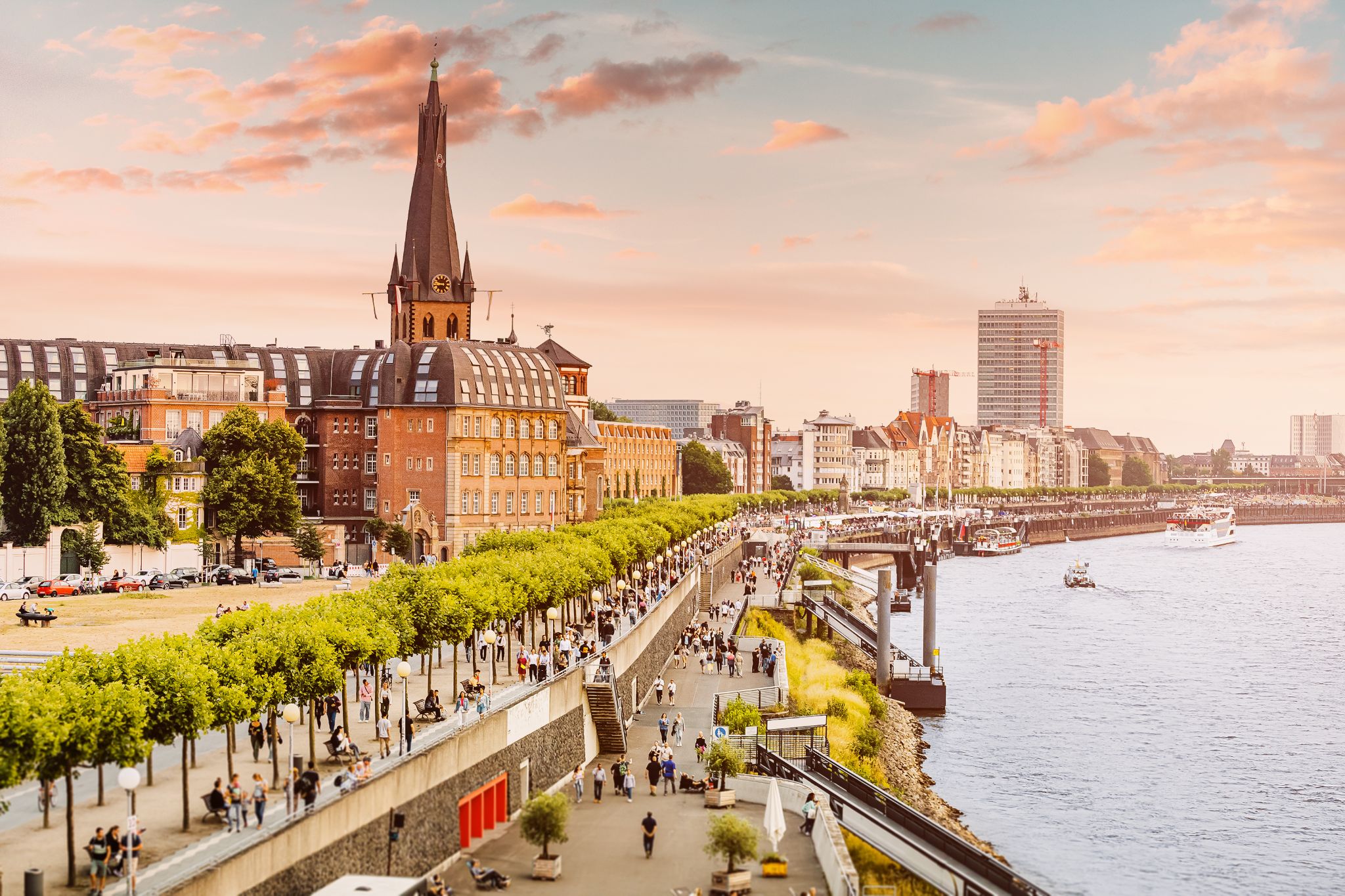
Düsseldorf is the capital and second-largest city of the most populous German federal state of North Rhine-Westphalia after Cologne, as well as the seventh-largest city in Germany. with a population of 617,280. At the confluence of the Rhine and its tributary Düssel, the city lies in the centre of both the Rhine-Ruhr and the Rhineland Metropolitan Regions with the Cologne Bonn region to its south and the Ruhr to its north. Most of the city lies on the right bank of the Rhine (as opposed to Cologne, whose city centre lies on the river's left bank). The city is the largest in the German Low Franconian dialect area (closely related to Dutch). "Dorf" meaning "village" in German, the "-dorf" suffix (English cognate: thorp) is unusual in the German-speaking area for a settlement of Düsseldorf's size.
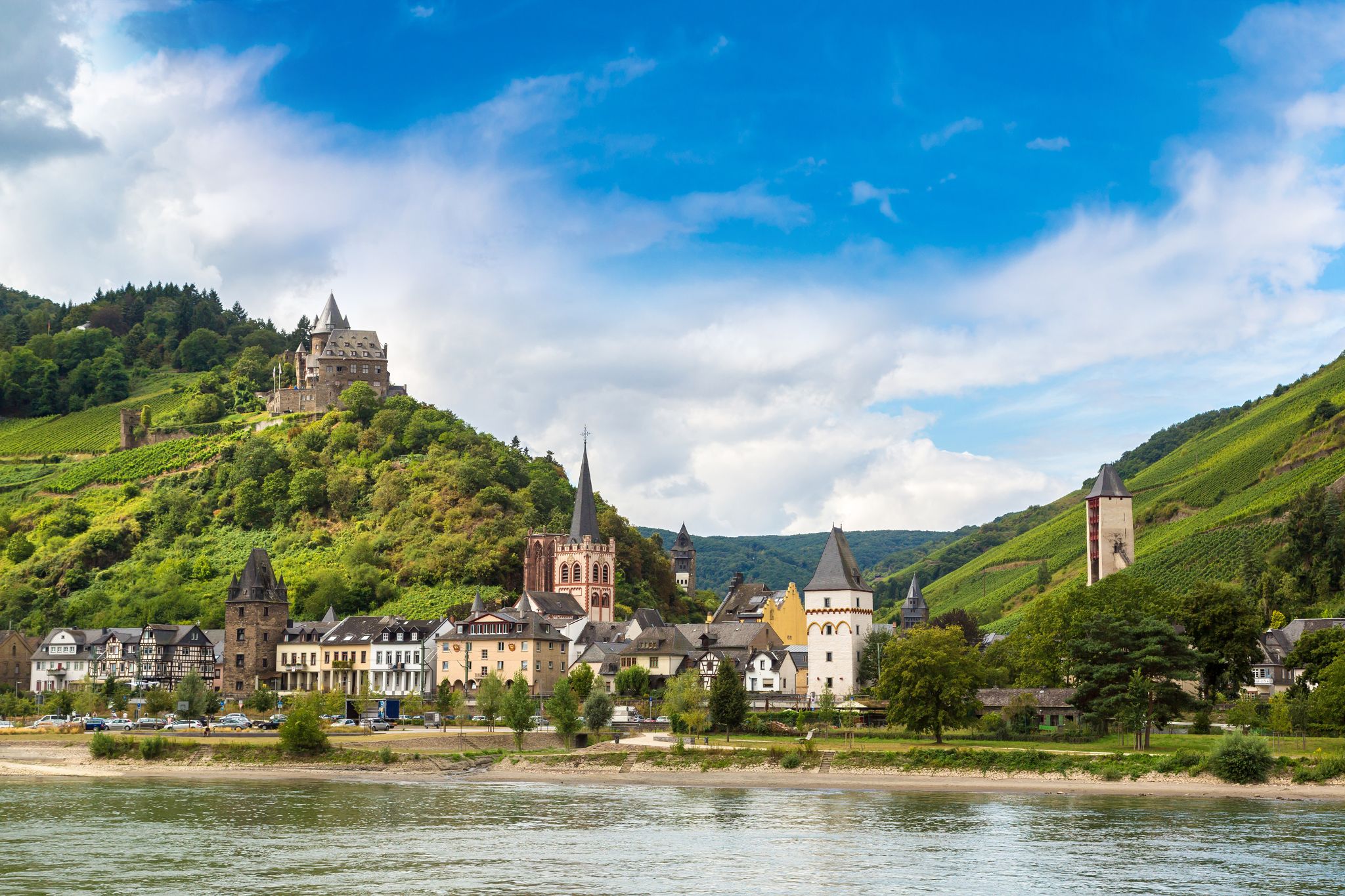
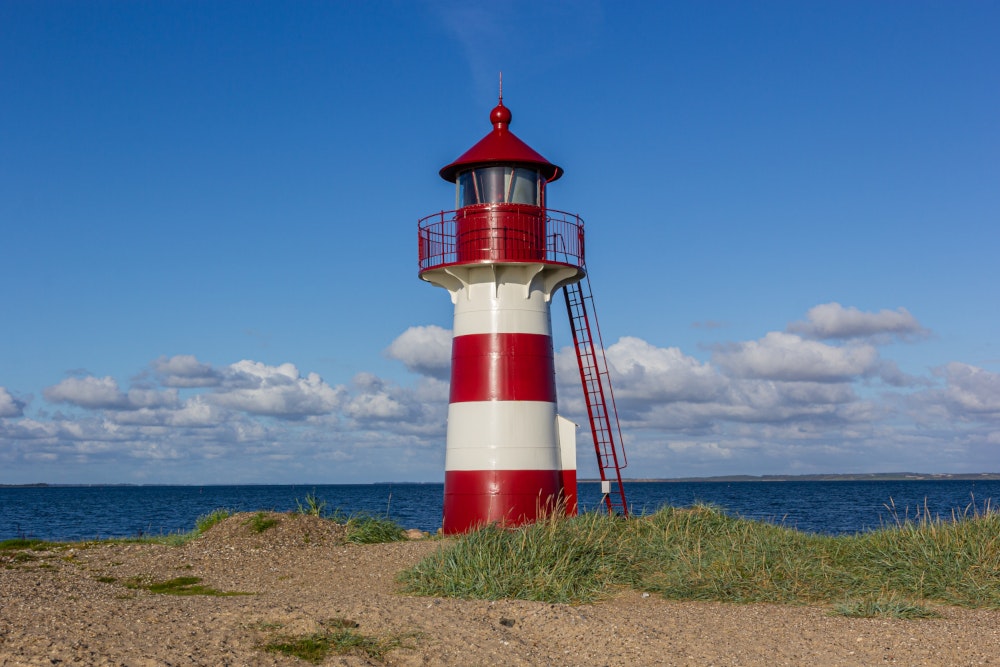


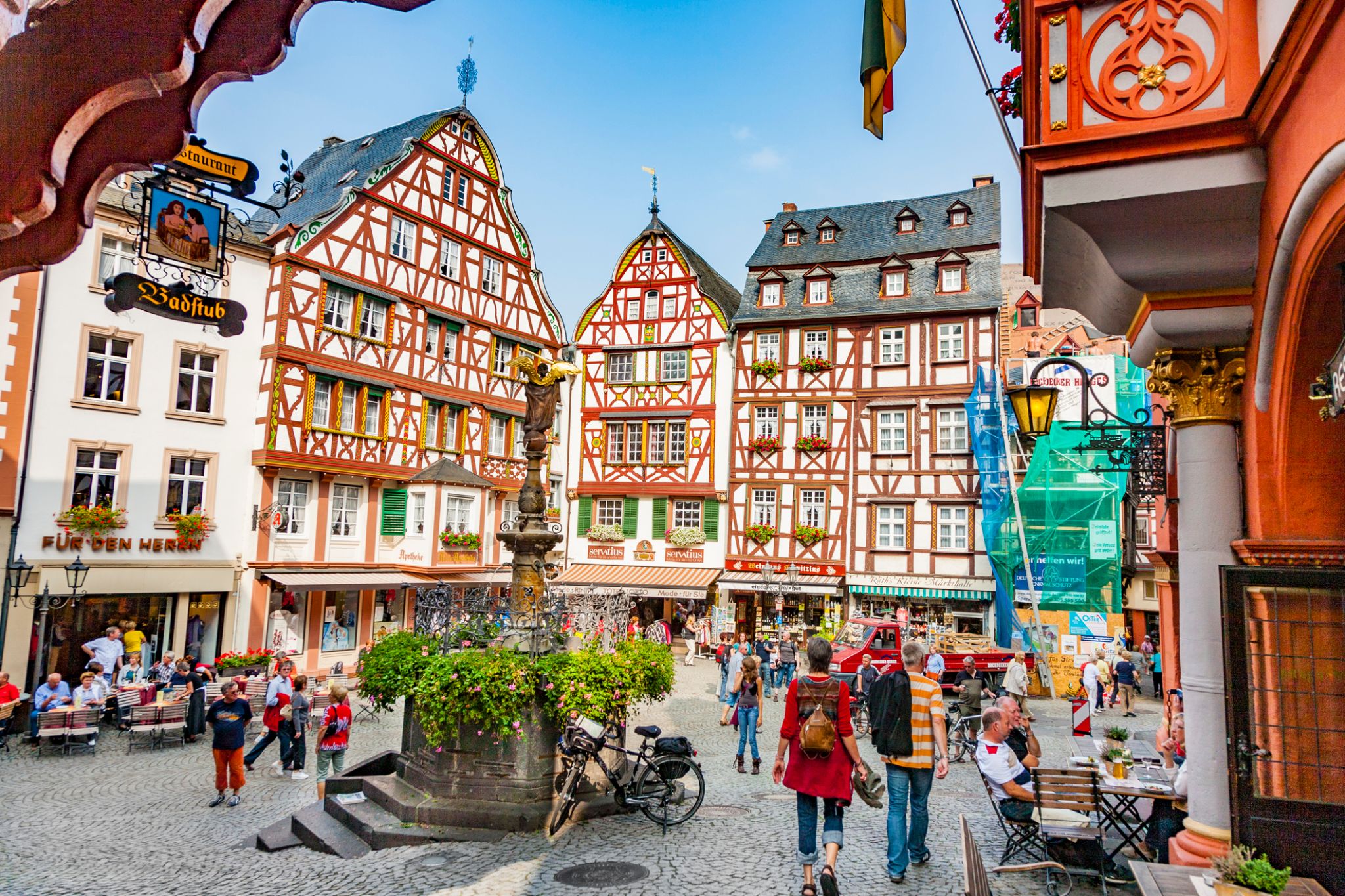
Bernkastel-Kues is a well-known winegrowing centre on the Middle Moselle in the Bernkastel-Wittlich district in Rhineland-Palatinate, Germany. The town is a state-recognized health resort (Erholungsort), seat of the Verbandsgemeinde of Bernkastel-Kues and birthplace of one of the most famous German polymaths, the mediaeval churchman and philosopher Nikolaus von Kues (Cusanus).

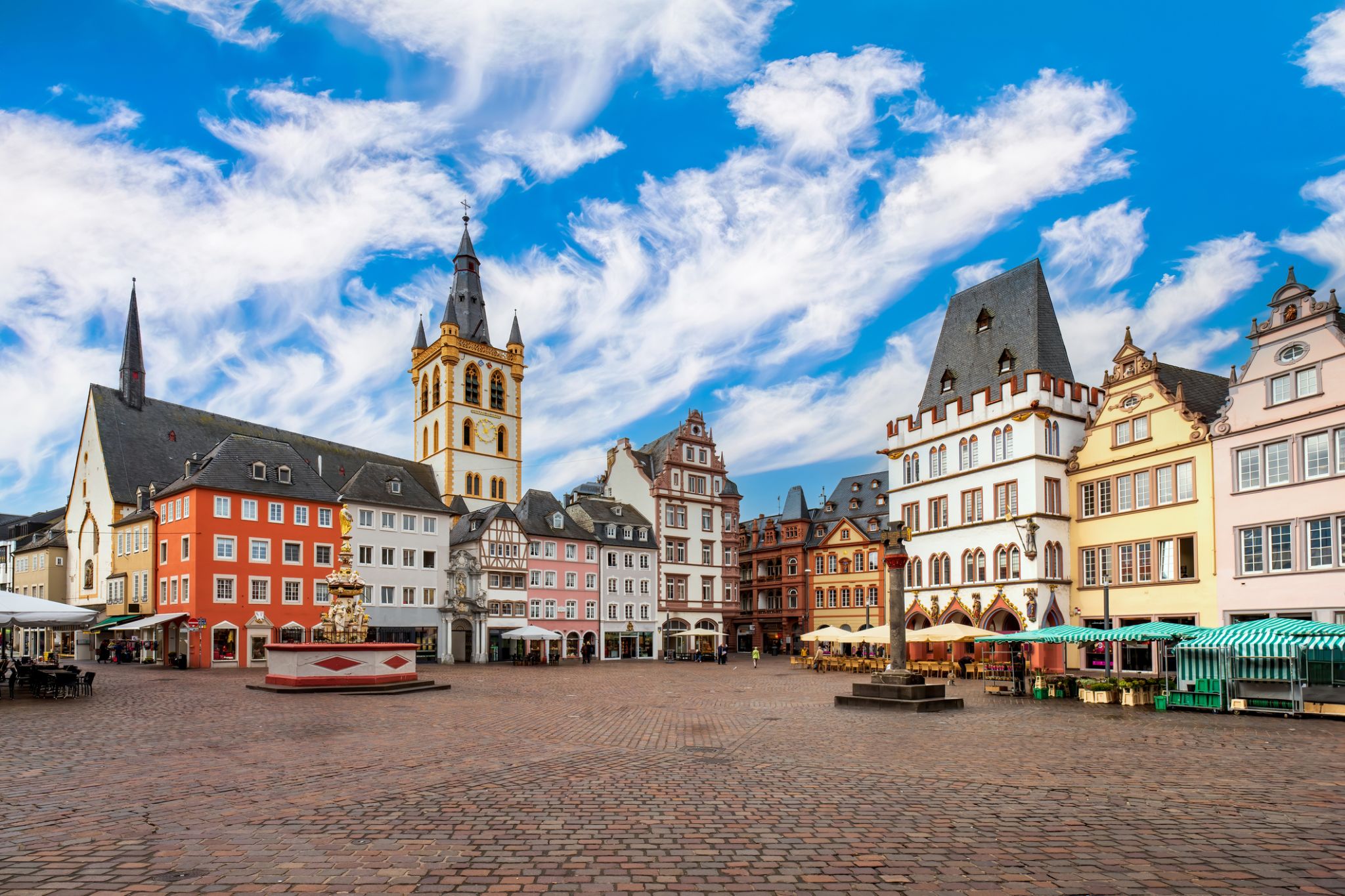


Bernkastel-Kues is a well-known winegrowing centre on the Middle Moselle in the Bernkastel-Wittlich district in Rhineland-Palatinate, Germany. The town is a state-recognized health resort (Erholungsort), seat of the Verbandsgemeinde of Bernkastel-Kues and birthplace of one of the most famous German polymaths, the mediaeval churchman and philosopher Nikolaus von Kues (Cusanus).
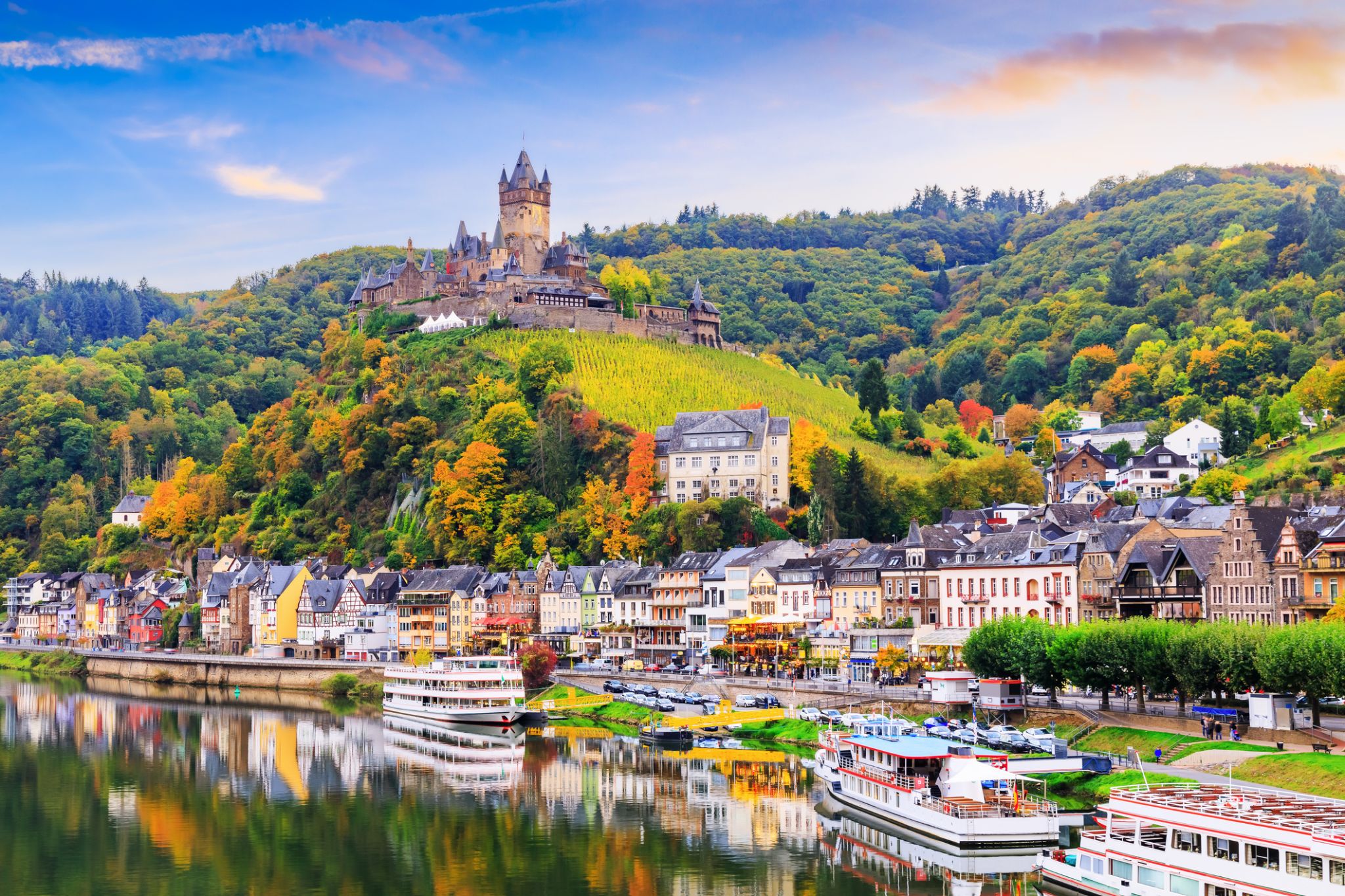




Bernkastel-Kues is a well-known winegrowing centre on the Middle Moselle in the Bernkastel-Wittlich district in Rhineland-Palatinate, Germany. The town is a state-recognized health resort (Erholungsort), seat of the Verbandsgemeinde of Bernkastel-Kues and birthplace of one of the most famous German polymaths, the mediaeval churchman and philosopher Nikolaus von Kues (Cusanus).
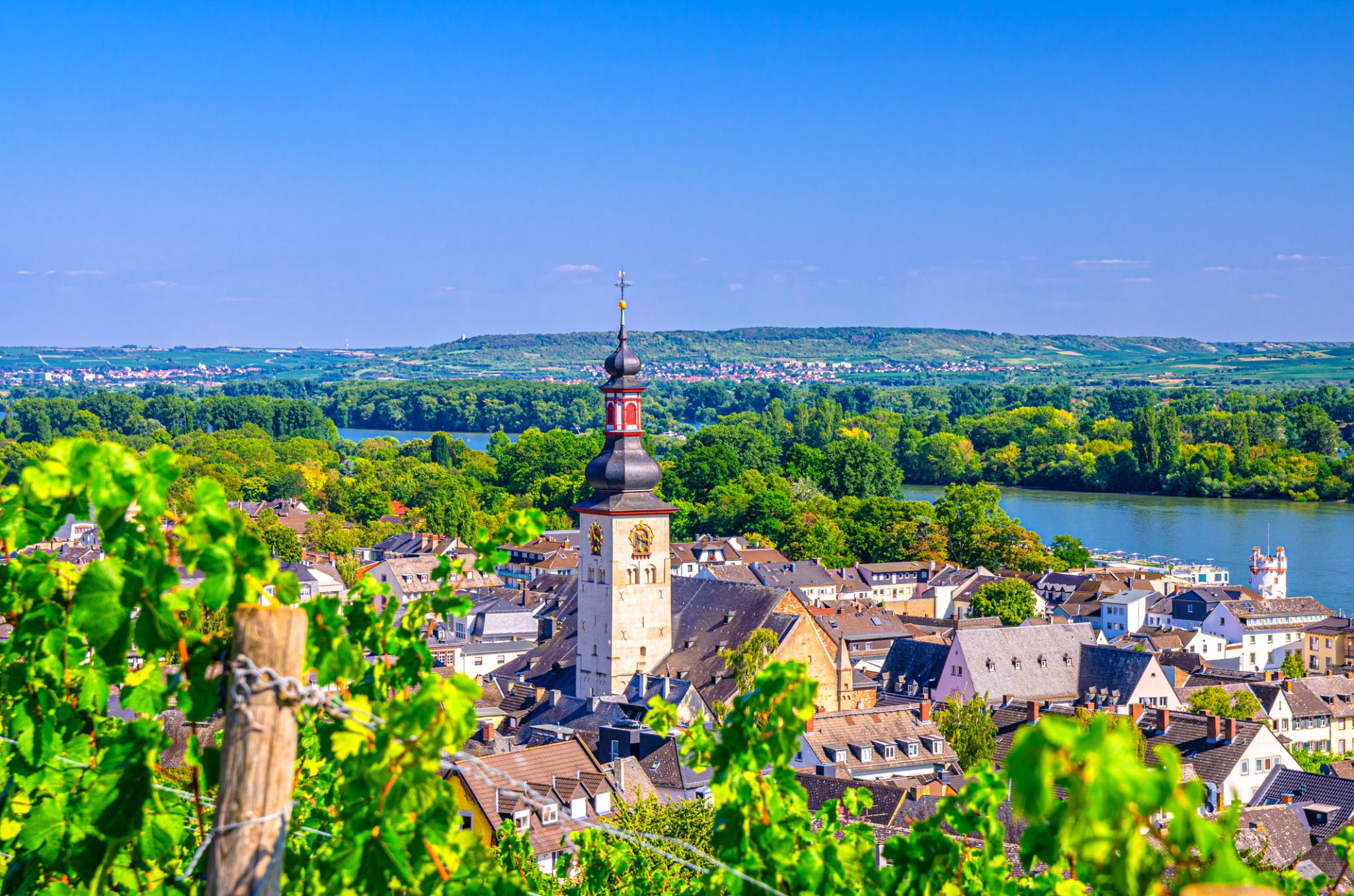



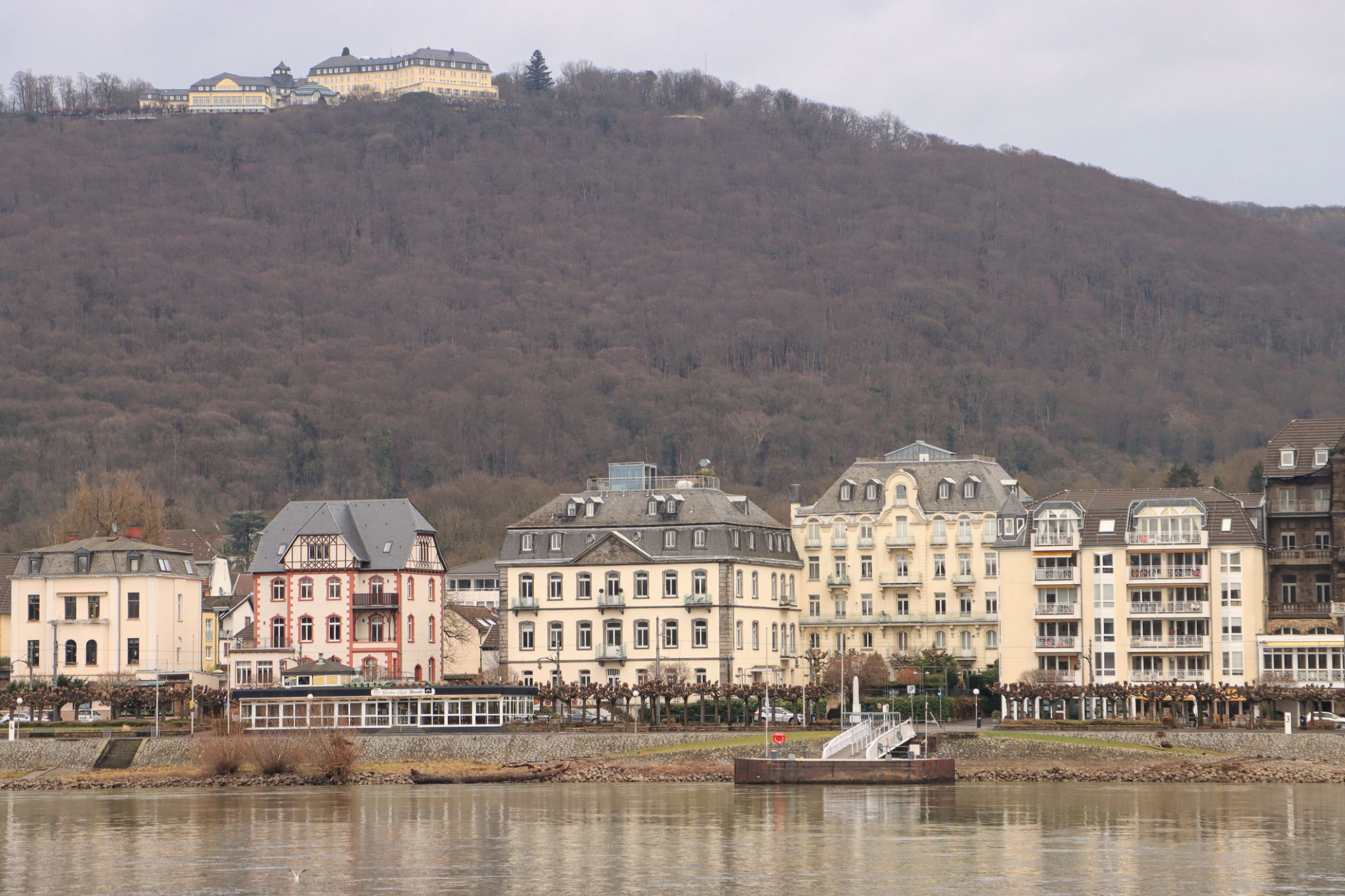

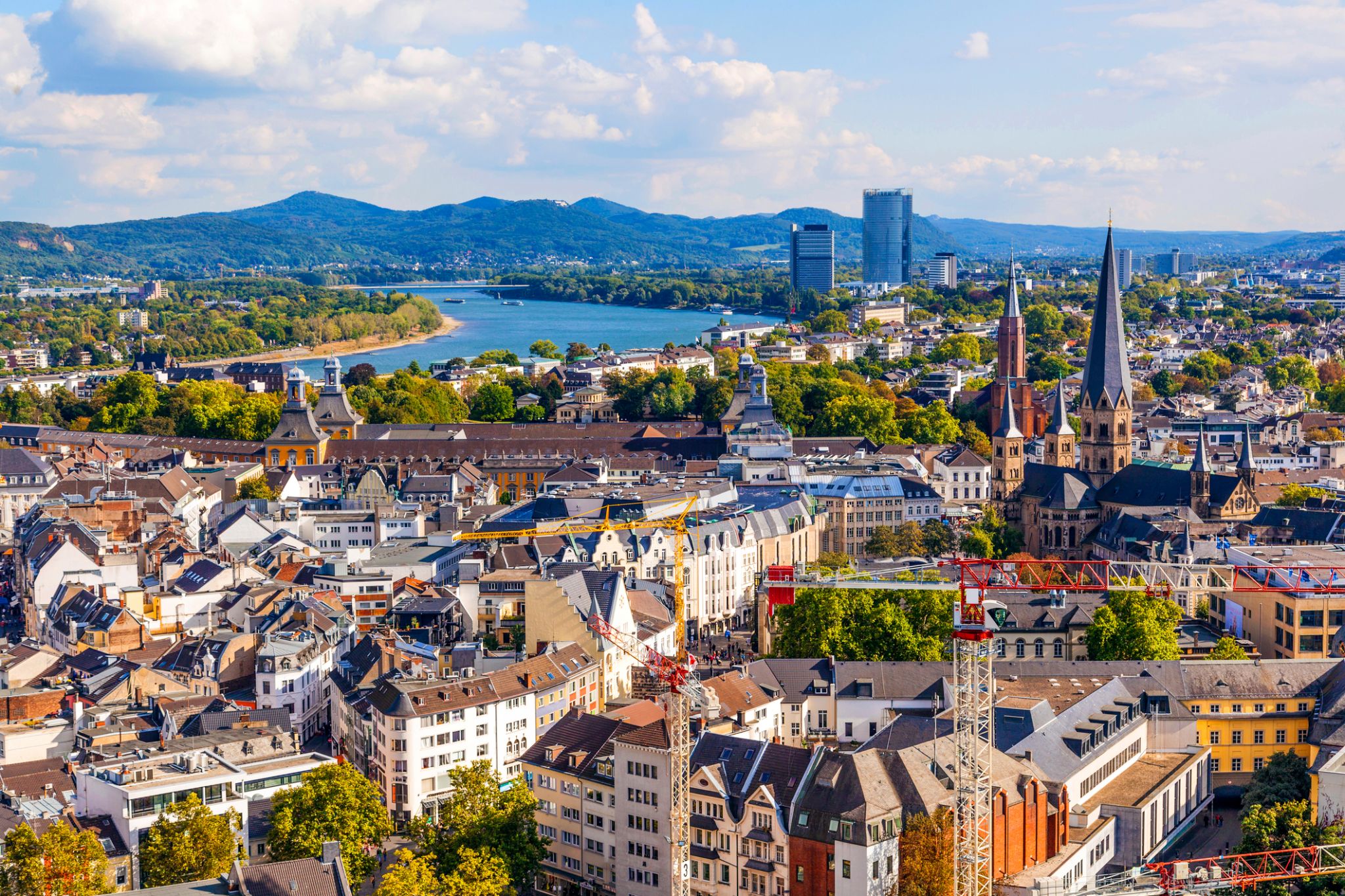
Bonn (German pronunciation: [bɔn] ) is a federal city in the German state of North Rhine-Westphalia, located on the banks of the Rhine. With a population exceeding 300,000, it lies about 24 km (15 mi) south-southeast of Cologne, in the southernmost part of the Rhine-Ruhr region. This metropolitan area, Germany's largest, is also the second largest in the European Union by GDP, with over 11 million residents.

Düsseldorf is the capital and second-largest city of the most populous German federal state of North Rhine-Westphalia after Cologne, as well as the seventh-largest city in Germany. with a population of 617,280. At the confluence of the Rhine and its tributary Düssel, the city lies in the centre of both the Rhine-Ruhr and the Rhineland Metropolitan Regions with the Cologne Bonn region to its south and the Ruhr to its north. Most of the city lies on the right bank of the Rhine (as opposed to Cologne, whose city centre lies on the river's left bank). The city is the largest in the German Low Franconian dialect area (closely related to Dutch). "Dorf" meaning "village" in German, the "-dorf" suffix (English cognate: thorp) is unusual in the German-speaking area for a settlement of Düsseldorf's size.



Düsseldorf is the capital and second-largest city of the most populous German federal state of North Rhine-Westphalia after Cologne, as well as the seventh-largest city in Germany. with a population of 617,280. At the confluence of the Rhine and its tributary Düssel, the city lies in the centre of both the Rhine-Ruhr and the Rhineland Metropolitan Regions with the Cologne Bonn region to its south and the Ruhr to its north. Most of the city lies on the right bank of the Rhine (as opposed to Cologne, whose city centre lies on the river's left bank). The city is the largest in the German Low Franconian dialect area (closely related to Dutch). "Dorf" meaning "village" in German, the "-dorf" suffix (English cognate: thorp) is unusual in the German-speaking area for a settlement of Düsseldorf's size.